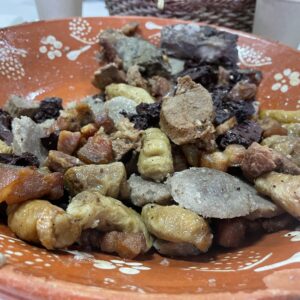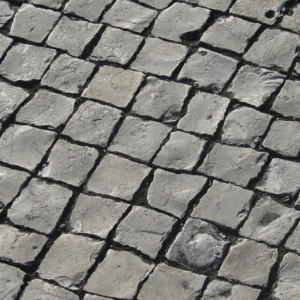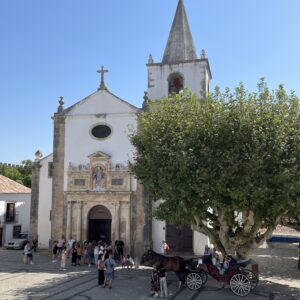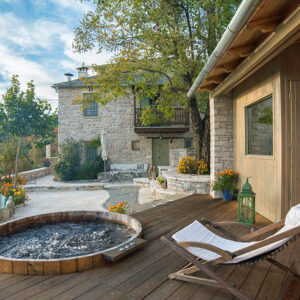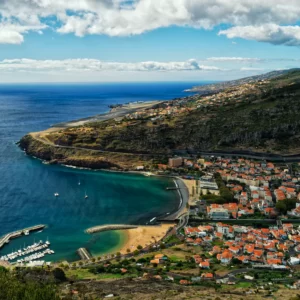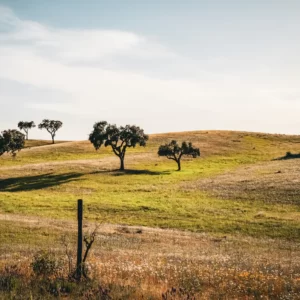Introduction
Overview of Portugal’s wine regions
Portugal is home to a diverse range of high-end wine regions, each with its own unique characteristics and offerings. From the picturesque Douro Valley to the sun-drenched Alentejo, there is something for every wine lover in Portugal. The Douro Valley, known for its steep terraced vineyards and world-famous Port wine, offers stunning views and a rich history. On the other hand, the Alentejo region boasts vast plains and a Mediterranean climate, producing bold and full-bodied wines. Whether you prefer red, white, or fortified wines, Portugal’s wine regions have something to suit every palate. With its long winemaking tradition and commitment to quality, Portugal has firmly established itself as a top destination for wine enthusiasts.
Importance of high-end wine production
The importance of high-end wine production in Portugal cannot be overstated. With its diverse wine regions, such as Douro Valley and Alentejo, Portugal has established itself as a top destination for high-quality wines. These regions are known for their unique terroir, which contributes to the distinct flavors and characteristics of the wines produced. High-end wine production not only showcases the rich cultural heritage and traditions of Portugal but also boosts the country’s economy through wine tourism and exports. Additionally, it plays a significant role in promoting Portugal as a global player in the wine industry, earning recognition and accolades from wine enthusiasts around the world.
Purpose of the article
The purpose of this article is to explore the diverse high-end wine regions of Portugal, specifically the Douro Valley and Alentejo. Portugal is known for its rich history and tradition of winemaking, and these two regions are at the forefront of producing some of the finest wines in the country. By delving into the unique characteristics and winemaking practices of the Douro Valley and Alentejo, this article aims to showcase the beauty and complexity of Portuguese wines and highlight why they are highly regarded in the international wine scene.
Douro Valley
History and heritage of the region
The history and heritage of the Douro Valley and Alentejo regions in Portugal are rich and fascinating. The Douro Valley, known for its production of Port wine, has a history that dates back to ancient times. The region’s terraced vineyards and traditional winemaking methods have been passed down through generations, creating a unique and authentic wine culture. Alentejo, on the other hand, is a region with a long history of winemaking that can be traced back to the Roman era. The region’s warm climate and fertile soil make it ideal for growing a variety of grape varietals, resulting in high-quality wines. Both regions have played a significant role in shaping Portugal’s winemaking traditions and continue to produce some of the country’s finest wines.
Unique terroir and grape varieties
Portugal’s diverse high-end wine regions are known for their unique terroir and grape varieties. From the Douro Valley to Alentejo, each region offers a distinct combination of soil, climate, and topography that contribute to the exceptional quality and character of their wines. The Douro Valley, famous for its Port wines, features steep terraced vineyards along the Douro River, while Alentejo boasts vast plains and Mediterranean climate, ideal for producing robust red wines. The terroir of these regions, combined with indigenous grape varieties such as Touriga Nacional and Aragonez, results in wines that truly showcase the essence of Portugal’s winemaking heritage. Whether you prefer elegant and complex reds or crisp and refreshing whites, Portugal’s high-end wine regions have something to offer for every wine enthusiast.
Renowned wineries and their signature wines
Renowned wineries in Portugal’s high-end wine regions offer a delightful array of signature wines that showcase the diversity and excellence of the country’s winemaking. In the Douro Valley, renowned wineries such as Quinta do Vallado and Quinta do Crasto produce exceptional Port wines, known for their rich flavors and complex aromas. Moving to the Alentejo region, Herdade dos Grous and Esporão are among the top wineries, crafting remarkable red wines with a perfect balance of fruitiness and elegance. These wineries have mastered the art of winemaking, capturing the essence of the terroir and delivering wines that are a true reflection of Portugal’s winemaking heritage.
Alentejo
Geographical characteristics and climate
Portugal’s wine regions, including Douro Valley and Alentejo, are known for their geographical characteristics and diverse climates. The Douro Valley, located in the northern part of the country, is characterized by steep terraced vineyards that overlook the Douro River. This unique landscape provides ideal conditions for growing grapes, resulting in high-quality wines. On the other hand, Alentejo, situated in the southern region, is known for its vast plains and hot, dry climate. These conditions contribute to the production of full-bodied red wines with rich flavors. Overall, Portugal’s wine regions offer a range of geographical features and climates that contribute to the diversity and excellence of its high-end wines.
Indigenous grape varieties
Portugal is renowned for its diverse high-end wine regions, and one of the key factors contributing to this diversity is the presence of indigenous grape varieties. These unique grape varieties have been cultivated in Portugal for centuries and are well-suited to the country’s climate and terroir. From the Douro Valley to Alentejo, each region boasts its own set of indigenous grapes, resulting in wines with distinct flavors and characteristics. The use of indigenous grape varieties not only adds to the authenticity of Portuguese wines but also showcases the rich cultural heritage of the country. Wine enthusiasts can explore the fascinating world of Portuguese wines by delving into the fascinating array of indigenous grape varieties found in the country’s high-end wine regions.
Innovative winemaking techniques
Innovative winemaking techniques have played a crucial role in shaping Portugal’s diverse high-end wine regions. From the picturesque Douro Valley to the sun-soaked Alentejo, winemakers have embraced modern practices to elevate the quality and character of their wines. One such technique is the use of temperature control during fermentation, allowing for greater control over the extraction of flavors and aromas. Additionally, the introduction of oak aging has added complexity and depth to many Portuguese wines. These innovative approaches have not only enhanced the overall wine production in Portugal but have also contributed to the country’s reputation as a world-class wine destination.
Wine Tourism
Exploring vineyards and cellars
When exploring the vineyards and cellars of Portugal’s diverse high-end wine regions, one is immersed in a world of rich history, breathtaking landscapes, and exceptional wine craftsmanship. From the picturesque Douro Valley, with its terraced vineyards and centuries-old wineries, to the sun-drenched Alentejo, known for its vast plains and innovative wine production, each region offers a unique experience for wine enthusiasts. Whether strolling through the vineyards, learning about the winemaking process, or tasting the exquisite wines, there is no better way to appreciate the beauty and complexity of Portuguese wines than by exploring these remarkable vineyards and cellars.
Wine tasting experiences
When it comes to wine tasting experiences in Portugal, the country’s diverse high-end wine regions offer a range of options to satisfy even the most discerning wine connoisseur. From the picturesque Douro Valley, known for its world-renowned Port wines, to the sun-drenched vineyards of Alentejo, where rich and full-bodied reds are produced, there is something for everyone. Whether you prefer to explore historic wine estates, participate in guided tastings, or simply relax with a glass of wine while taking in the stunning scenery, Portugal’s wine regions provide an unforgettable experience for wine lovers.
Culinary delights and local gastronomy
When it comes to culinary delights and local gastronomy, Portugal’s diverse high-end wine regions offer an array of mouthwatering experiences. From the Douro Valley to Alentejo, food enthusiasts can indulge in a rich tapestry of flavors and traditions. In the Douro Valley, known for its world-renowned Port wines, visitors can savor traditional dishes such as bacalhau com natas (codfish with cream) and arroz de pato (duck rice). Meanwhile, in Alentejo, famous for its robust red wines, gastronomic delights include dishes like migas (bread-based dish with meat) and açorda (bread-based soup). Whether you’re a wine connoisseur or a food lover, exploring Portugal’s high-end wine regions is a treat for the senses.
Challenges and Opportunities

Climate change and its impact on wine production
Climate change is having a significant impact on wine production in Portugal’s diverse high-end wine regions. Rising temperatures and changing weather patterns are altering the traditional grape-growing seasons and challenging winemakers to adapt their practices. The Douro Valley and Alentejo, known for their exceptional wines, are experiencing shifts in rainfall patterns, which can affect grape quality and yield. Additionally, the increasing frequency of extreme weather events, such as heatwaves and droughts, poses further challenges to the sustainability of wine production. As a result, winemakers are implementing innovative techniques, such as irrigation management and vineyard repositioning, to mitigate the effects of climate change and ensure the continued production of high-quality wines in these regions.
Sustainable practices in the wine industry
Sustainable practices in the wine industry have become increasingly important in recent years. With growing concerns about the environmental impact of agriculture, winemakers in Portugal’s high-end wine regions have been taking steps to minimize their ecological footprint. From the Douro Valley to Alentejo, vineyards are implementing sustainable farming methods such as organic and biodynamic practices, as well as using renewable energy sources. These practices not only help preserve the natural resources and biodiversity of the region but also contribute to the production of high-quality wines. By prioritizing sustainability, Portugal’s wine industry is not only ensuring a better future for the environment but also meeting the demands of conscientious consumers who value eco-friendly and ethically produced wines.
Emerging markets and export opportunities
Emerging markets and export opportunities play a crucial role in the success of Portugal’s diverse high-end wine regions. With the growing popularity of Portuguese wines worldwide, there is a significant demand for these unique and exceptional products. The Douro Valley and Alentejo regions, known for their rich history and exceptional wine production, are now expanding their reach to new markets. Countries such as China, Brazil, and the United States have shown a growing interest in Portuguese wines, providing exciting opportunities for export. The unique terroir and grape varieties of these regions offer a distinct and captivating taste that appeals to wine enthusiasts around the globe. As Portugal continues to establish itself as a prominent player in the wine industry, emerging markets present a promising avenue for growth and recognition.
Conclusion
Summary of Portugal’s high-end wine regions
Portugal is home to a diverse range of high-end wine regions, each with its own unique characteristics and offerings. From the famous Douro Valley, known for its stunning terraced vineyards and world-renowned Port wines, to the picturesque region of Alentejo, known for its full-bodied red wines and rolling plains, Portugal has something to offer every wine enthusiast. The country’s high-end wine regions are not only known for their exceptional wines, but also for their rich history and cultural heritage, making them a must-visit destination for wine lovers and travelers alike.
Future prospects and trends
In terms of future prospects and trends, Portugal’s high-end wine regions, including Douro Valley and Alentejo, are poised for continued success. The country’s long history of winemaking, combined with its unique terroir and grape varieties, sets it apart in the global wine industry. With increasing recognition and demand for Portuguese wines, both domestically and internationally, the future looks promising for these regions. Additionally, the growing focus on sustainability and organic practices in winemaking is likely to further enhance the reputation of Portugal’s high-end wine regions. As consumers become more conscious of the environmental impact of their choices, the commitment to sustainable practices will be a key factor in determining the success and growth of these regions in the coming years.
Appreciation of Portuguese wines
Portuguese wines have gained a significant appreciation in recent years, captivating wine enthusiasts from around the world. With its diverse high-end wine regions, such as Douro Valley and Alentejo, Portugal offers a remarkable variety of wines that showcase the country’s rich viticultural heritage. From the elegant and complex red wines of Douro Valley to the bold and full-bodied wines of Alentejo, each region has its own unique characteristics and flavors. The appreciation of Portuguese wines goes beyond their taste; it is also a recognition of the dedication and expertise of the winemakers who carefully craft each bottle. Whether you are a seasoned wine connoisseur or just starting to explore the world of wines, the appreciation of Portuguese wines is sure to leave a lasting impression.

